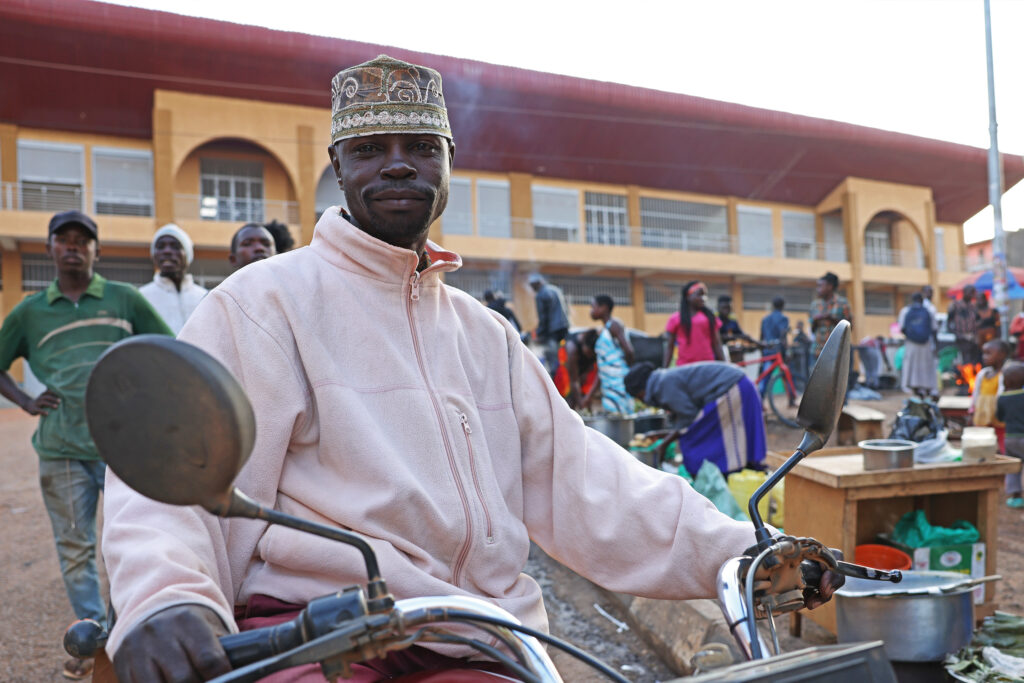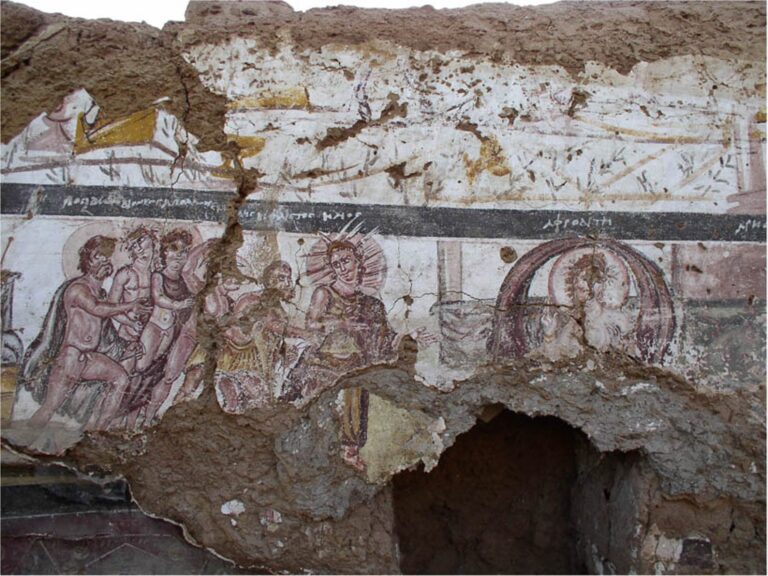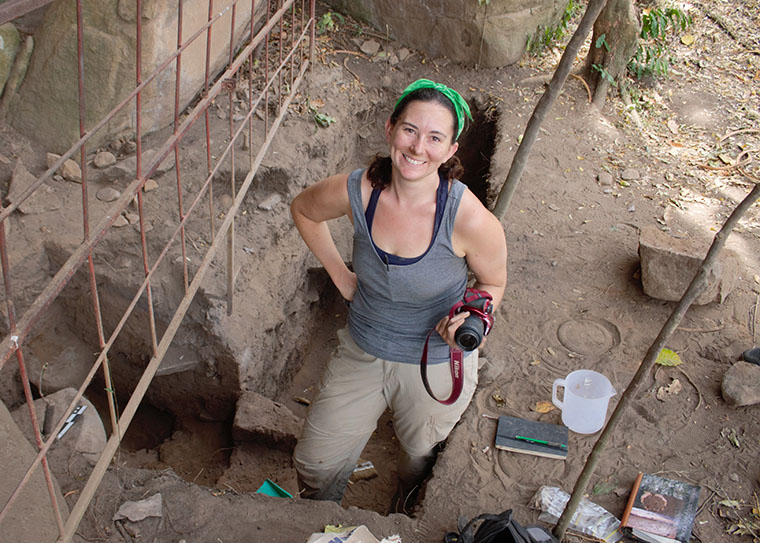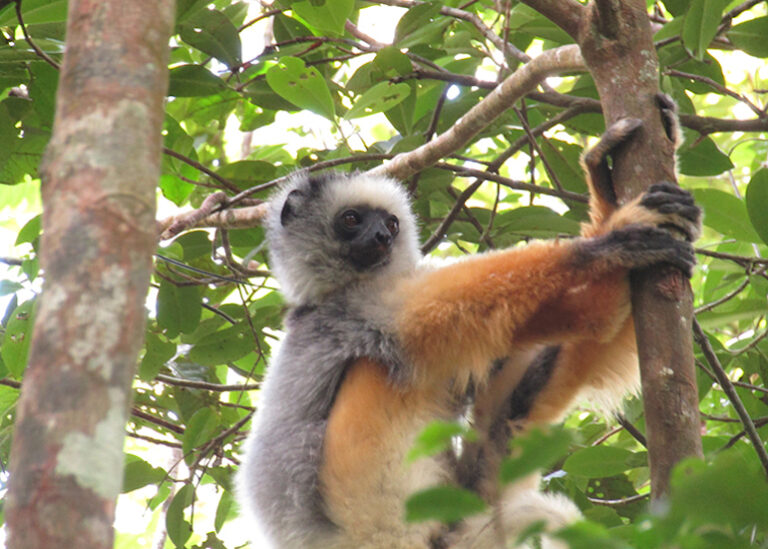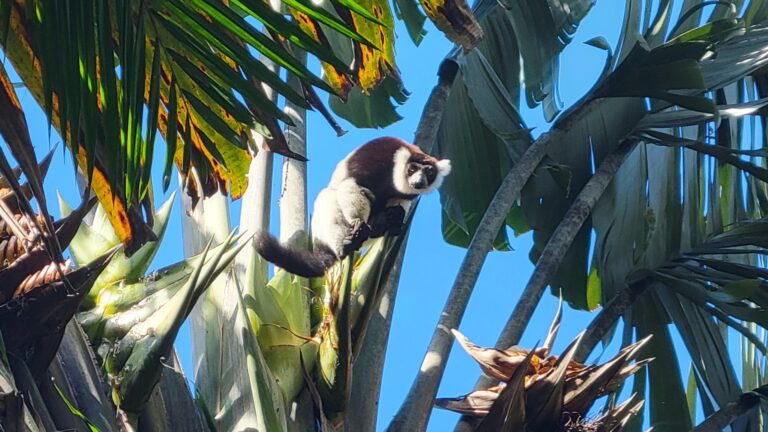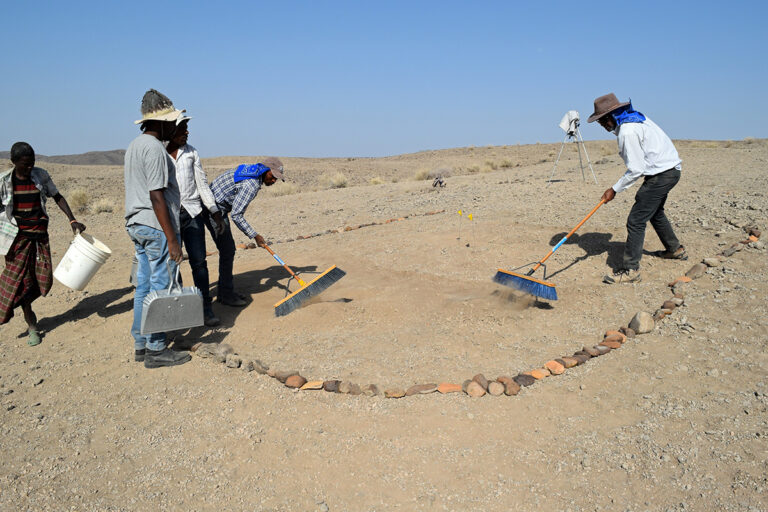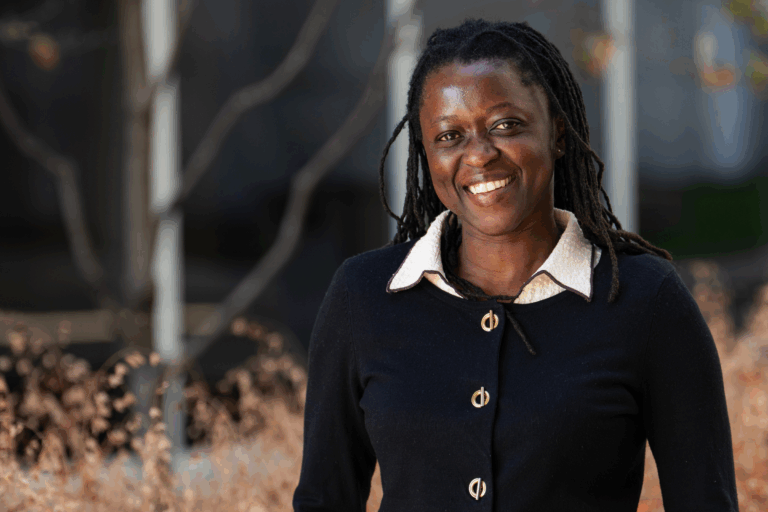Africa is a vibrant, diverse continent that defies simple stereotypes. WashU faculty, students and staff are engaged in collaborative research and educational initiatives in more than 35 countries in Africa, with important contributions in the areas of public health, human development, and environmental research.
On campus, we have a vibrant, interdisciplinary intellectual community with deep ties to Africa. Multiple centers and programs foster collaboration and dialogue on issues related to Africa, including the African and African-American Studies department, the International Center for Child Health and Development (ICHAD), SMART Africa Center, the Institute of Public Health, and the Global Health Center.
When they say ‘It takes a village’ here, people think that is a made-up thing, but it really takes a village. That community, where you don’t belong to one family but to an entire village – that is what informs my work.
Fred Ssewamala
Research excellence
Faculty from all WashU schools and many different disciplines are engaged in collaborative work across the African continent. From leading economic empowerment interventions to developing therapeutic foods for malnourished children, our researchers are making a positive impact in Africa.
Seed grant initiatives and strategic partnerships with the University of Ghana and with Makerere University in Uganda provide a strong foundation to build further momentum for WashU’s engagement on the continent.
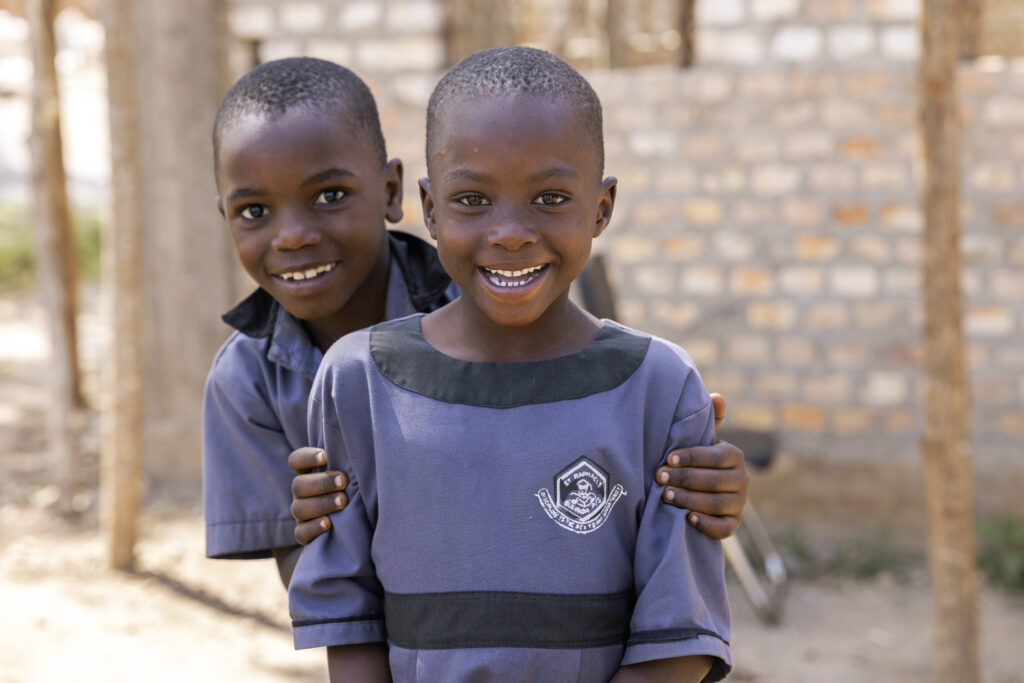
Offering Hope in Uganda and Beyond
WashU professor, Dr. Fred Ssewamala, and his research team at WashU and in Uganda have been working for decades to alleviate the impacts of poverty on Uganda’s most vulnerable youth – orphans. They are creating economic empowerment and public health interventions that are making a huge difference in the lives of children, families, and communities in the African country.
More research stories
Excavating ‘the Pompeii of the desert’
A team led by Nicola Aravecchia reveals crucial clues to the early spread of Christianity and life in the Egyptian desert.
Archaeologists report earliest evidence for plant farming in east Africa
Located in the foothills of Mount Elgon near the Kenya-Uganda border, Kakapel Rockshelter is the site where WashU archaeologist Natalie Mueller and her collaborators have uncovered the earliest evidence for plant farming in east Africa.
Lemur’s lament, balancing conservation
What can be done when one threatened animal kills another? Scientists studying critically endangered lemurs in Madagascar confronted this difficult reality when they witnessed attacks on lemurs by another vulnerable species, a carnivore called a fosa. This dynamic can be particularly complex when the predation occurs in an isolated or poor-quality habitat, according to research […]
Education and outreach
WashU students have a variety of opportunities to explore the countries and cultures of the African continent. Numerous courses, centers, programs, and student-led initiatives on campus advance dialogue on topics related to Africa and promote appreciation of the dynamic cultures within the continent. Students can also gain hands-on experience solving real world problems on the ground in Africa through programs such as the Madagascar Sustainability Initiative and Engineers Without Borders.
Programs and partnerships
The African and African-American Studies department offers opportunities for students to explore the social, political and intellectual history as well as the literature, culture and artistic life of the people and places of the African diaspora. Summer programs in Kenya and Senegal, as well as class trips and study abroad in other parts of the U.S. and global African Diaspora, can further enrich the student experience.
The department regularly sponsors lectures and events, such as plays, film festivals, exhibits, field trips, and panels and speakers, which focus on contemporary or perennial topics of interest in all areas of the Black experience. In many cases, guest lecturers and artists visit classes and interact directly with our students and others across the campus community. Through its scholarship, teaching, and broader engagement activities, the department fosters a vibrant and impactful social and intellectual community of African and African-American Studies.
A unique opportunity offered by the Center for Experiential Learning, the Madagascar Sustainability Initiative gives students hands-on experience with projects that promote sustainable economic development in Madagascar. Through a partnership with the Missouri Botanical Garden, students from diverse disciplines are challenged to develop and assess the feasibility of entrepreneurial solutions for poverty alleviation through the lens of environmental conservation and sustainable development.
Rural subsistence farmers in Madagascar often harvest resources from the forest to get by, putting pressure on the forest for everyday needs. Together with researchers from the Missouri Botanical Garden, students develop entrepreneurial solutions to tackle the twin challenge of addressing human needs and conservation of Madagascar’s biodiversity through community-based sustainable agricultural practices. After spending a semester learning about economic and sustainability issues facing the country, student teams design and implement projects that hold out promise to decrease pressure on rare forests and improve the lives of the people in Madagascar.
The African Students Association (ASA) promotes intellectual, political, social, and cultural awareness about the African continent among members of the organization and the broader WashU community. Since 2005, the organization has shared African culture through bi-weekly general body meetings, events such as Africa Week, the ASA Fashion Show, the African Film Festival, and more. Follow ASA on Facebook!
The Olin Africa Business Club seeks to increase awareness of business opportunities, the culture, politics and economic potential of Africa. It hosts signature events such as the Olin Africa Business Forum, which brings together international business leaders, renowned scholars, and cultural changemakers showcasing Africa’s impact on the global business landscape and strategizing ways to harness the immense potential across the continent. The programming includes panel discussions, an African-themed movie night, and a Taste of Africa event. Follow the club on Facebook!
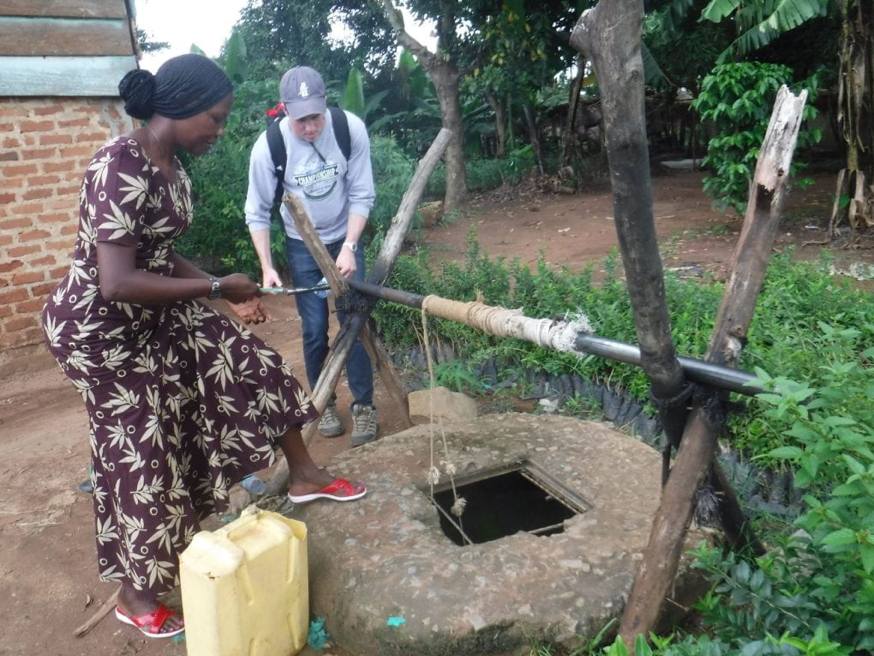
EWB brings water to village half a world away
Engineers Without Borders (EWB) provides WashU students with an opportunity to serve and learn by implementing sustainable engineering projects.
More education stories
Saving forests and alleviating poverty
WashU sophomores work with villagers in rural Madagascar to conserve biodiversity.
“If you want safe communities, you need strong girls”
In 2001, Heather Cameron was teaching in Berlin when she had a novel idea that has transformed lives and communities around the world: start a female boxing club.
EWB brings water to village half a world away
Engineers Without Borders (EWB) provides WashU students with an opportunity to serve and learn by implementing sustainable engineering projects.
Alumni networks and impact
International networks support WashU alumni, students, families, and friends by offering opportunities to socialize, network, and share memories. We welcome you to reach out, make new connections, and build on your lifelong connection with WashU.
You can update your personal profile using the form below for our alumni directory.
WashU CNX is the university’s online networking platform where alumni and current students share experiences and expertise, ask questions, find answers, and help each other grow. They make meaningful connections every day.
NETWORK CONTACT
Vijay Ramani
Senior Vice Provost for Graduate Education and International Affairs
- 314-935-7924
- International.Alumni@wustl.edu
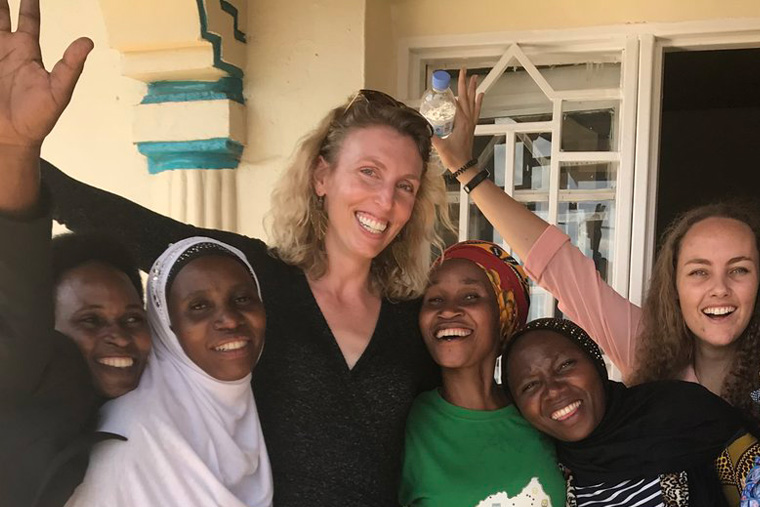
Empowering women in East Africa
Markey Culver, MBA ’17, leads The Women’s Bakery, an international social enterprise that empowers women in East Africa by creating access to education and sustainable employment through the establishment of bakeries. The organization trains East African women to build, operate, manage and sustain their own businesses.
More alumni stories
One woman’s journey through the world of sustainability
In addition to working with various NGOs, such as CARE International, Pacific Environment and the Natural Capital Institute, Melinda Kramer is best known for founding The Women’s Earth Alliance (WEA).
Champions for health equity
Before even graduating from the Washington University School of Medicine, classmates Yang Jae Lee, MD 2021 and Gautum Adusumilli, MD 2021 were already committed to solving some of the most pressing problems in global health equity.
Bringing electricity to rural communities
WashU Engineering alumnus, Frank Bergh, BA ’08, uses his education to take electricity to remote regions of the world.
Latest news in Africa
Explore our impact in other regions
No single map can reflect all global perspectives. The country borders on this map do not reflect the official policy of Washington University in St. Louis or any specific government.
